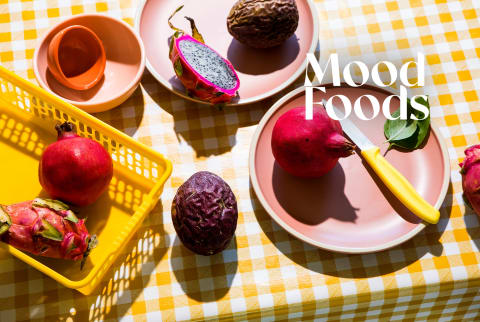Advertisement
How Dangerous Is Aspartame, Really? A Nutritional Psychiatrist Weighs In


As a nutritional psychiatrist specializing in how nutrition impacts mental and neurological health, I often work with clients to make day-to-day nutrition plans. And one of the most common questions I get in my practice is if it's healthier to drink regular sodas or "diet" or "sugar-free" sodas.
Given that the WHO recently declared aspartame1, a common sweetener used in sugar-free products all over the world, as a "possible carcinogen," there's so much to unpack here. As a Harvard brain expert, here are my thoughts on aspartame and how it affects your physical and mental health.
Does drinking diet soda actually give you cancer?
Naturally, this new WHO declaration has caused quite a stir in the nutrition and health space. It's important to note that when it comes to determining an ingredient's toxicity, you need to consider doses consumed—and according to the International Agency for Research on Cancer, there isn't an acute cause for concern regarding cancer when it comes to the aspartame doses you'll find in a can of diet soda.
But just because it doesn't directly cause cancer doesn't mean it isn't problematic. I'm still concerned about the effects of aspartame on the gut and brain and mental health. Research underscores the disruptive effects of artificial sweeteners like aspartame on the gut microbiome2. Countless studies have shown that an unbalanced gut microbiome can have negative effects on our mental health3.
In addition, aspartame has been shown to inhibit neurotransmitter function4—that is, the action of the chemical compounds in our brain that govern mood—and induce feelings of depression and anxiety over time. In addition, recent research5 suggests that exposure to aspartame "produces changes in the expression of genes regulating excitation-inhibition balance in the amygdala, a brain region that regulates anxiety and fear."
My take on artificial sweeteners
The negative effects that artificial sweeteners have on the gut and the brain give me pause and remind me of one of my top six pillars of nutritional psychiatry: Be whole, eat whole.
When we choose foods sweetened with artificial sweeteners, we also often choose foods rife with refined oils, colorants, dyes, and stabilizers. Though these may be "fortified" with a single vitamin to make them appear healthy, in reality, they are delivering just one tiny component of a much larger picture of true nutrition (usually, with a heavy dose of inflammation too).
In response, I always recommend my clients switch their sodas to fruit- or cucumber-infused still or sparkling waters. These are whole-food, flavorful, nutrient-rich beverage options.
What I love most about whole foods, such as fresh berries, crisp leafy greens, plant-based proteins, and nourishing whole grains, is that they provide a balanced offering of various nutrients that, together, support our energy and mental health. The natural combinations of nutrients in whole foods often contain some healthy fats or proteins to keep blood sugar stable, enabling constant energy. They also contain fiber that nourishes the gut and makes sure our brain is optimized for good mood and focus. Key minerals make the world go round, I say, for they play important roles in our body's natural production of neurotransmitters—the chemicals that govern our mood.
This doesn't mean I endorse strict nutrition plans, however. When we maintain a whole food, unprocessed diet 80% of the time, the remaining 20% of the time allows for some flexibility. As with all things, I believe moderation is key when it comes to nutrition.
The takeaway
While the recent news on aspartame and cancer paints a concerning picture, the science does not yet support a direct, causative link. But from a nutritional psychiatry perspective, I am still wary of foods sweetened with aspartame and recommend whole food choices instead. To me, whole foods support our whole health.